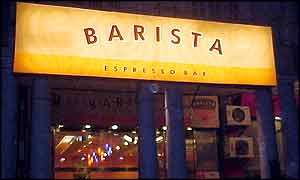A Democratic Colony
Few days back, I was talking to a senior person who happened to be an educated economist of the day. Amongst casual talk he opened my eyes to a new perspective to India's growing economy. Perhaps, his ideas are too obvious to be new, but nonetheless, I am sure not many people are good at seeing the trivial.
India is the biggest democracy. It took India a hundred years of continuous struggle, through hard times of sacrifice, to attain a stage from where such a democratic build up became possible. British colonization shrunk India's resources to an infimum, finally leaving it to grow on the shoulders of an agrarian system. Jawaharlal Nehru envisioned the Five Year Plans to guide the economic development in the 50s. Every strategy undertaken at that time was rightly biased towards the poorer section of the society. Investment schemes became the focus during the 80s. And then came the era of liberalization. The public and private sector market gradually opened up for exploration. Finance, industry, transportation, telecommunications, production, education - every sector was flooded with foreign investments. The impact is of course worth noticing, with India becoming one of the fastest growing countries. The question now - is history repeating itself? is India being exploited once again? is India becoming a colony hidden under the mask of a democracy?
The answers are debatable. But for the time being, let us focus on the people of India. India being a source for cheap labor, most multinationals are shifting their base of operations there. The government is perhaps technically correct to keep the resources wide open as it does. However, it is also technically correct to expect that the benefits of labor extended to the foreign market should directly return to the people of India in some form or the other. The case does not seem to be so.
A huge number of products manufactured in India are sold at comparatively similar prices across the world, including India. At first glance it looks like the best way to create balance, but a closer look reveals that it is actually the best way to bring forth imbalances in the economic development of the people across countries. A commodity made in India should to be made more readily available to the people of India. Rather, prices are so labeled (say $1 in USA and Rs.45 in India) that the affordability lines reflect the opposite. Non-profit organizations outside India set up their branches in India for profit, the profit being channelled to maintain their non-profit counterparts elsewhere. Foreign insurance companies are laying their foundations in India by penetrating into the commoners life. Indian property in the form of mortgages are now residing in foreign lands. The Indian market is constantly used as a point of recurring profit, not for the people of India but from the people of India.
This sounds suprisingly familiar. The difference is that 159 years ago it was a single trading company that pushed India back in the race of development, and now its a whole platoon of them. Which one do you think is more dangerous?
India is the biggest democracy. It took India a hundred years of continuous struggle, through hard times of sacrifice, to attain a stage from where such a democratic build up became possible. British colonization shrunk India's resources to an infimum, finally leaving it to grow on the shoulders of an agrarian system. Jawaharlal Nehru envisioned the Five Year Plans to guide the economic development in the 50s. Every strategy undertaken at that time was rightly biased towards the poorer section of the society. Investment schemes became the focus during the 80s. And then came the era of liberalization. The public and private sector market gradually opened up for exploration. Finance, industry, transportation, telecommunications, production, education - every sector was flooded with foreign investments. The impact is of course worth noticing, with India becoming one of the fastest growing countries. The question now - is history repeating itself? is India being exploited once again? is India becoming a colony hidden under the mask of a democracy?
The answers are debatable. But for the time being, let us focus on the people of India. India being a source for cheap labor, most multinationals are shifting their base of operations there. The government is perhaps technically correct to keep the resources wide open as it does. However, it is also technically correct to expect that the benefits of labor extended to the foreign market should directly return to the people of India in some form or the other. The case does not seem to be so.
A huge number of products manufactured in India are sold at comparatively similar prices across the world, including India. At first glance it looks like the best way to create balance, but a closer look reveals that it is actually the best way to bring forth imbalances in the economic development of the people across countries. A commodity made in India should to be made more readily available to the people of India. Rather, prices are so labeled (say $1 in USA and Rs.45 in India) that the affordability lines reflect the opposite. Non-profit organizations outside India set up their branches in India for profit, the profit being channelled to maintain their non-profit counterparts elsewhere. Foreign insurance companies are laying their foundations in India by penetrating into the commoners life. Indian property in the form of mortgages are now residing in foreign lands. The Indian market is constantly used as a point of recurring profit, not for the people of India but from the people of India.
This sounds suprisingly familiar. The difference is that 159 years ago it was a single trading company that pushed India back in the race of development, and now its a whole platoon of them. Which one do you think is more dangerous?


